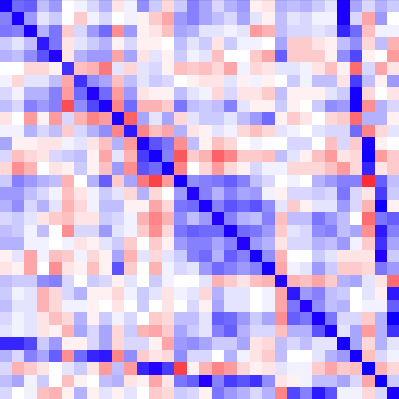
-
Learn more about...
- Frequently Asked Questions
- Personality: TAI
- Temperament
- Ability
- Interests
- Recent Blog Posts
- Myers-Briggs Type Indicator® (MBTI®)
- Creativity
- Parsimony in Personality
- Code Sharing: scienceCareers
- Presidential Candidacy and Personality
- Eysenck Personality Questionnaire® (EPQ)
- The HEXACO Model
- The RIASEC Model
- The CHC Model
- The NEO-PI-R
- see more...
The Eysenck Personality Questionnaire (EPQ) is a three dimensional personality assessment tool that was preceded by an overlapping two-dimensional measure called the Eysenck Personality Inventory (EPI). The EPI was developed by Hans and Sybil Eysenck
The EPQ was introduced as a substantial revision to the EPI in 1975
A second important change relates to the operationalization of Extraversion. The consequences of this important change are evaluated in detail by Rocklin & Revelle
The EPQ and EPQ-R also differ from many other personality questionnaires in that they use “Yes” and “No” response options instead of a 5- or 6-point Likert-type scale. Items take the form of questions like “If you say you will do something do you always keep your promise, no matter how inconvenient it might be to do so?” or “Do you often need understanding friends to cheer you up?” A reliability study conducted in 2001 reported that scores on the Neuroticism/Stability and Extraversion/Introversion scales tended to be more reliable than the Psychoticism scale. Several researchers
How much do you know about your own personality? Interested in finding out more? Take our SAPA personality test and see where you fall on the Big Five distributions!
Footnotes:
* Before looking up the proper spelling of ExtrOversion, be sure to read this wonderful post by Scott Barry Kaufman at Scientific American.
References:
[1] Eysenck, H. J. & Eysenck, S. B. G. (1968).
[2] Eysenck, H. J. & Eysenck, S. B. G. (1975).
[3] Eysenck, S. B. G., Eysenck, H. J. & Barrett, P. (1985).
[4] Eysenck, H. J. (1981).
[6] Porzio, S. K. (2004).
[7] Rocklin, T., & Revelle, W. R. (1981). The measurement of Extraversion: A comparison of the Eysenck Personality Inventory and the Eysenck Personality Questionnaire.
[8] Caruso, J. C., Witkiewitz, K., Belcourt-Dittloff, A., & Gottlieb, J. D. (2001). Reliability of scores from the Eysenck Personality Questionnaire: A reliability generalization study.